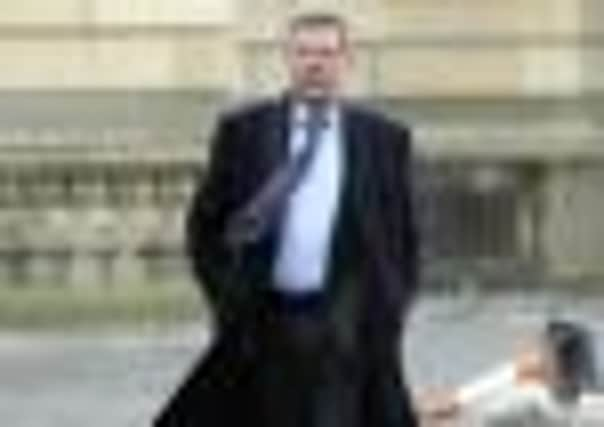Suzanne Pilley murder: Sentencing of David Gilroy to be filmed live


In a historic break with tradition, cameras will be allowed to film the judge, Lord Bracadale, as he delivers his sentence after one of the most high-profile murder investigations in recent years.
There will then be a short delay while the judge and court staff check the tape to ensure that nothing defamatory or inappropriate has been shouted from the dock or public gallery, which could infringe on the administration of justice.
Advertisement
Hide AdAdvertisement
Hide AdOnce approved, the footage will be distributed by STV to other media outlets.
David Gilroy, 49, who last month was found guilty of the murder of Ms Pilley, 38, will not be filmed as he would need to give his consent. His former lover, Ms Pilley, an office worker from Edinburgh, went missing in May 2010. Her body has never been found but police believe Gilroy may have hidden her somewhere in Argyll, where he went on a business trip shortly after her disappearance. The case, which began as a missing persons inquiry, quickly developed into a murder hunt.
Overwhelming public interest in the case was the basis for the decision, taken by Lord President Lord Hamilton, with the agreement of Lord Bracadale.
Future requests are expected to be decided on a case-by-case basis, but if the Gilroy sentencing goes smoothly, it could become more commonplace in Scottish courts.
The break with tradition was broadly welcomed yesterday.
Willie Rennie, Scottish Liberal Democrat leader, said: “By televising this, people like Gilroy, who have been found guilty of such a shocking crime, will face a day of reckoning. The public will be able to see justice being done.”
Lewis Macdonald, Scottish Labour justice spokesman, said: “In broad terms this is a welcome step towards greater transparency. The public wants to understand better how the court system works, and are frustrated when they don’t.
“The precautions are sensible. It is important that victims and witnesses are not impugned.” He predicted it will be a step towards more regular filming.
Victim Support Scotland said it was important that the feelings of relatives are considered in the process.
Advertisement
Hide AdAdvertisement
Hide AdA spokesman said: “The openness and transparency of criminal justice is important to victims of crime and their families.We would give a cautious welcome to this, as it will pave the way for more openness.
“However, it should be borne in mind that the delay is an important element to ensure that victims and their immediate family can be informed of the outcome as speedily as possible.
“For some people it could be an issue if the decision is not communicated to them first.”
Cameras have been allowed in the appeal courts before, for hearings involving Nat Fraser, over the death of his wife, and Luke Mitchell, who murdered his girlfriend Jodi Jones.
A bail application relating to Lockerbie bomber Abdelbaset al Megrahi was also filmed, after his counsel, Maggie Scott, gave her consent.
Westminster Justice Secretary Ken Clarke has suggested that cameras could be allowed in appeal courts in England and Wales. The proposal is expected to be included in the Queen’s Speech in May, and could be expanded to include sentencings and judges summing up in serious criminal trials.
In a statement released yesterday, the Scottish Court Service said: “David Gilroy was found guilty of the murder of Suzanne Pilley on the 15 March, 2012.
“Following an application by STV, permission has now been granted to film Lord Bracadale sentencing David Gilroy at the High Court in Edinburgh at 10am on 18 April, 2012.
Advertisement
Hide AdAdvertisement
Hide Ad“The camera will focus on the judge and no other person will feature in the footage except the macer and the clerk. ”
A Scottish Government spokeswoman added: “Cameras are allowed into courts subject to the terms of the 1992 Practice Note issued by the then Lord President. The 1992 note makes clear it is a matter for broadcasters to request in specific cases that cameras are allowed into court.”